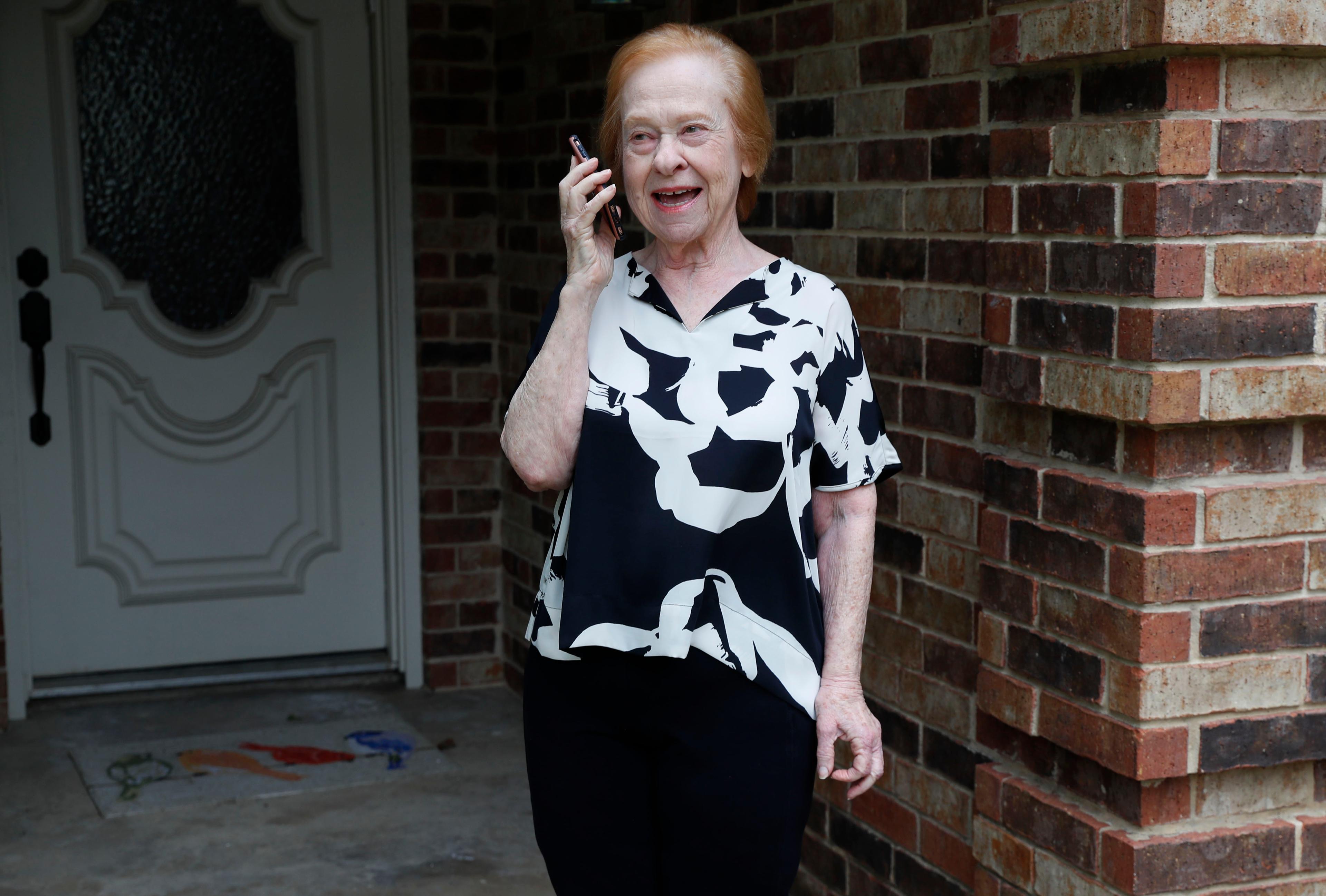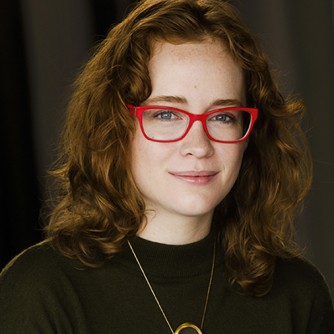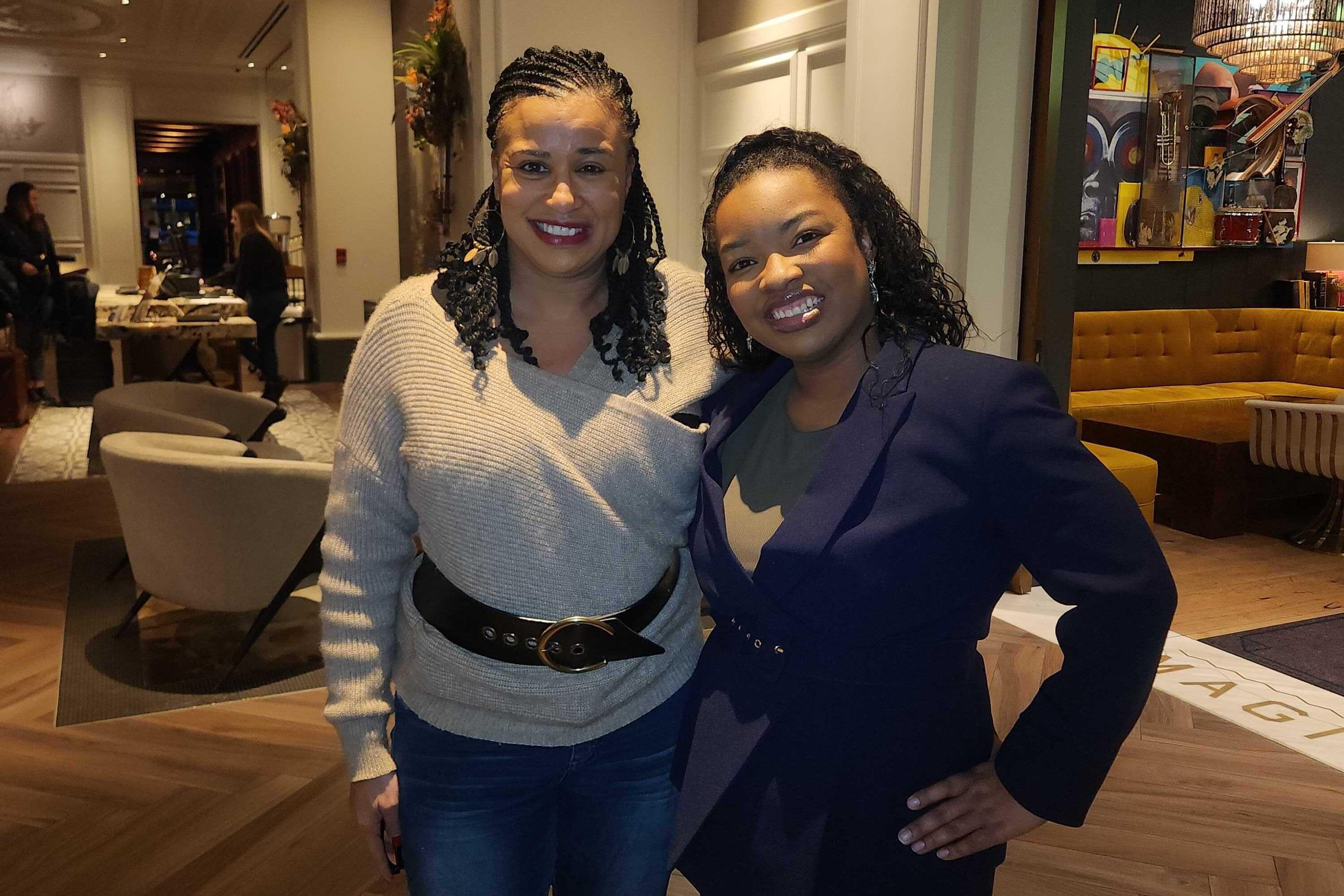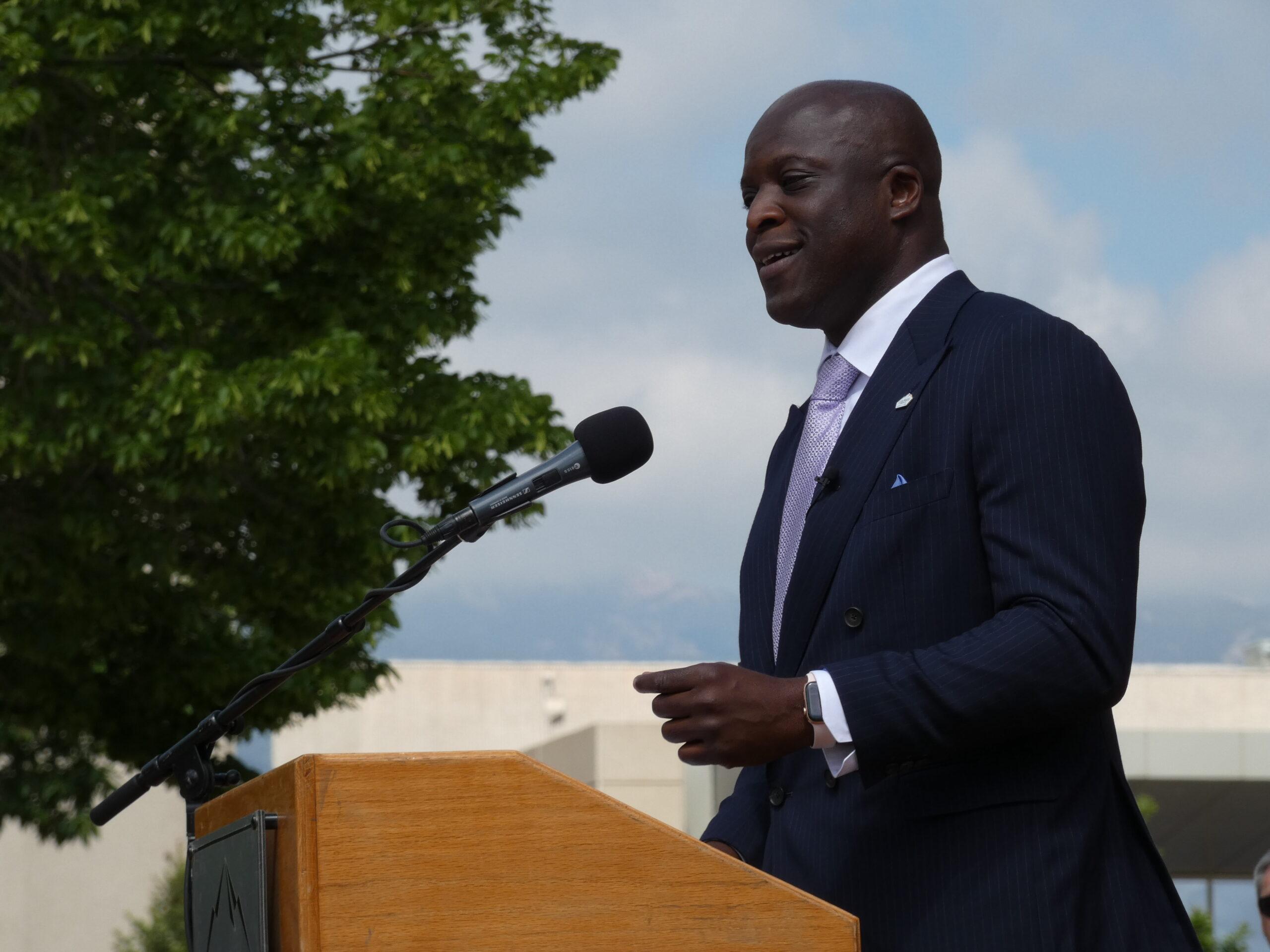The Paralympics start today in London. Among the American athletes competing are six visually impaired judo players. Blind judo is growing rapidly in the United States, in part thanks to the efforts of a Denver couple. Colorado Public Radio’s Megan Verlee is a judo player herself and trains at their club. She introduces us to the sport of blind judo for our series Colorado Competes.
Find our entire series, Colorado Competes here.
Learn more about this year's Paralympic judo team here.
The following is a transcript of Megan Verlee's report.
Reporter Megan Verlee: Judo is a martial art uniquely suited to blind players. It’s all up-close grappling - no kicks or punches.
[sound of a judo match]
Reporter: The thud and slide of bare feet on mats, hands fumbling for the right grip on a uniform, the sudden percussion of a body hitting the ground. With the other player almost always in your grasp, eyes are less necessary, and visually impaired players can often hold their own against the able-bodied.
Ron Hawthorne: People have seen me fight enough now and know if they go out there and take it easy on me, like I always say, I’m going to put them on the back of they head. So they actually going to come out there and fight me like their life depend on it.
Reporter: That’s Paralympian Ron Hawthorne. he’s been dreaming of gold since watching the Atlanta games 16 years ago and working for it almost as long. Hawthorne’s coach in London is Scott Moore, and full disclosure here, Moore also happens to be my judo coach, which means if he doesn’t like what I say about him, I could be in for some excruciating exercises when he gets back from London. But then, that’s nothing new. Excruciating drills are one of Moore’s specialties.
Scott Moore: So we’re going to start doing reach-and-pull crawls. So you’re just on your belly, pulling yourself across the mat. When you get halfway, you’re going to turn around and push yourself backwards.
Reporter: Just before heading to London, Moore brought members of the Paralympic team to the Olympic Training Center in Colorado Springs for a few intense days. The players drag their bodies along the mat, using only their upper arms, as Moore watches with his own pre-fight jitters.
Scott Moore: The hardest part for me is, I want this for these athletes as bad as they do for themselves. Sometimes I think I want it more, because I know what it’s like, I know what it feels like to be on that podium.
Reporter: Moore’s been there himself. Twelve years ago in Sydney, he became the first American judo player to bring home gold in the Paralympics. Moore isn’t fully blind. He’s an albino, which makes his eyes very sensitive to light. When he was competing, he was nationally ranked even among the sighted. That’s true for two members of this year’s Paralympic team too. The best hope for a medal is a player currently ranked number two on the able-bodied roster. But a lot of visually impaired players come to judo with less experience, sometimes much less.
Heidi Moore: We’ve had people come to the club, visually impaired players in their twenties, who’ve never done a somersault, or they’ve never run.
Reporter: That’s Heidi Moore, Scott’s wife and a champion judo competitor herself. She’s the Paralympic team’s assistant coach, and its top recruiter.
Heidi Moore: Scott’s always joked that I’ll see a blind person on the street and run up to them and say, "Hey, do you want to do judo?" And that’s not too far from the truth. I’ve approached people at the airport, at the mall, you know. We were eating lunch and we saw another guy with albinism so I walked over there and said, "Hey, I noticed you have albinism, so does my husband. Would you like to do judo?"
[sound of Scott Moore coaching]
Reporter: There are now almost 200 visually impaired judo players training around the country. Many of them come through Denver at some point. It helps that the city is close to both the Colorado Center for the Blind and the Olympic Training Center. The Moores say one challenge to building the Paralympic team is convincing coaches to push their blind players as hard as the sighted athletes. Another is finding blind fighters comfortable with being pushed.
Scott Moore: People are used to, a lot of the times getting patted on the back for not doing a whole lot, and that’s not what we do.
Heidi Moore: It’s a normal thing, for especially for parents of a child with a disability, to want to shield them to a certain extent. And especially in this day and age when everything’s about "great job, honey, everybody gets a trophy," judo’s not a sport that lends itself to that.
[sound of Heidi Moore coaching]
Reporter: Not everyone can win, but the Moores are hoping the fighters they’ve brought to London come home with plenty of hardware. And they’ve got a tough act to follow. Earlier this summer, the US won its first gold medal ever in Olympic judo. But Paralympian Ron Hawthorne is ready to make his mark, too.
Hawthorne: The biggest moment I’m looking forward to is, I want to hear our national anthem, and that’s being on the medal stand.
Reporter: Paralympic judo competition starts tomorrow in London.









